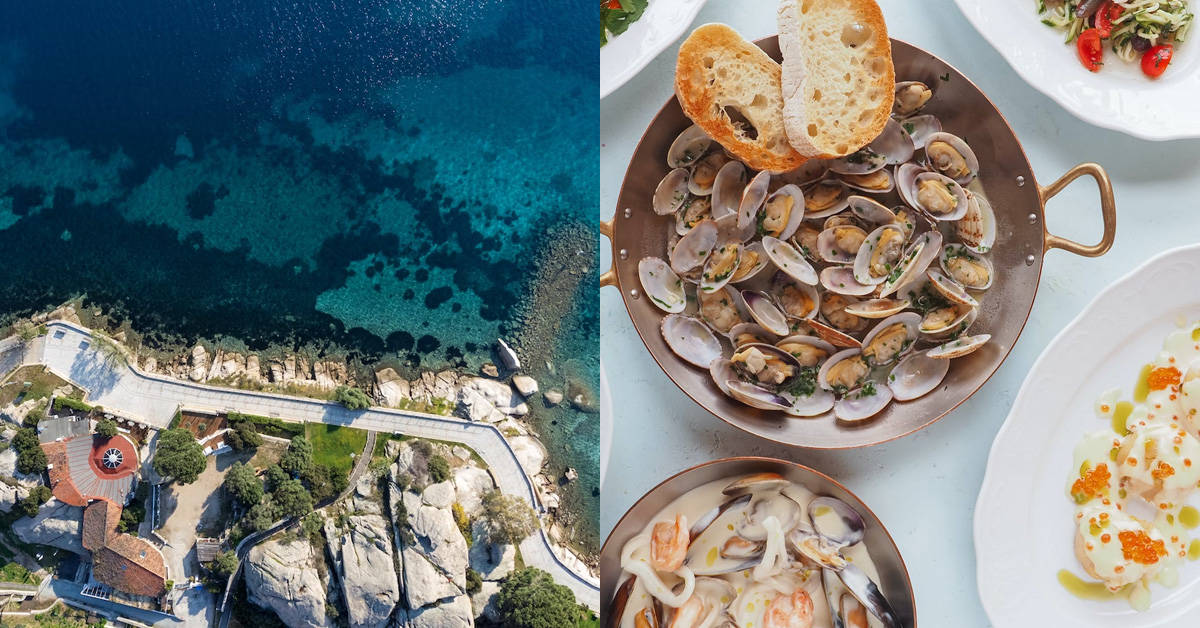Palauan cuisine is a unique blend of traditional and modern influences, reflecting the island nation’s rich cultural heritage and its proximity to other Pacific Rim countries. Palauan food is characterized by its use of fresh, locally sourced ingredients, including seafood, tropical fruits, and root vegetables.
The cuisine is also known for its bold flavors, which are often achieved through the use of spices, herbs, and marinades. Whether you’re a seafood lover or a fan of hearty stews and soups, Palauan cuisine has something to offer everyone.
Palauan cuisine halal or not?
Is Palauan food halal?
Palauan cuisine is not typically halal as it often includes pork and other non-halal ingredients. It is important to check the ingredients and preparation methods of any food before consuming it to ensure it meets your dietary requirements.
What kind of food do Palauan eat?
Palauan cuisine is heavily influenced by the traditional foods of Micronesia, Southeast Asia, and Polynesia. Some popular dishes include:
- Bai: A traditional Palauan dish made with taro leaves, coconut milk, and meat or fish.
- Kebabs: Grilled skewers of meat or seafood, often served with a spicy dipping sauce.
- Taro: A starchy root vegetable that is boiled, mashed, or fried and served as a side dish.
- Seafood: Palau is known for its fresh seafood, including fish, crab, lobster, and octopus.
- Fruit: Palauan cuisine features a variety of tropical fruits, including papaya, mango, and pineapple.
- Rice: Rice is a staple in Palauan cuisine and is often served with meat or seafood dishes.
- Coconut: Coconut is used in many Palauan dishes, including curries, stews, and desserts.
- Breadfruit: A starchy fruit that is boiled, mashed, or fried and served as a side dish.
- Cassava: A root vegetable that is boiled, mashed, or fried and served as a side dish.
- Noodles: Palauan cuisine also features a variety of noodle dishes, including stir-fried noodles and noodle soups.
How can you tell if the food is halal in Palau?
In Palau, halal food is not widely available as the majority of the population is Christian. However, some restaurants may offer halal options.
To determine if the food is halal, you can ask the restaurant staff if they use halal meat or if they have any halal-certified dishes. You can also look for halal certification logos or symbols on the restaurant’s menu or website.
Another option is to consult with the local Muslim community or mosque for recommendations on halal food options in Palau.
Is it hard to find halal food in Palau?
It may be challenging to find halal food in Palau. The majority of the population in Palau is Christian, and there are only a few Muslim residents.
Therefore, there are limited options for halal food in Palau. However, some restaurants may offer halal options upon request.
It is recommended to check with the restaurant beforehand or bring your own halal food if you are traveling to Palau.
Is Palauan food healthy?
Palauan cuisine is generally considered healthy as it is based on fresh seafood, fruits, and vegetables. Traditional Palauan dishes are often grilled, steamed, or boiled, which helps to retain the nutrients in the food.
However, like any cuisine, some dishes may be high in fat, salt, or sugar, so it is important to make informed choices when selecting meals.
What is Palauan food similar to?
Palauan food is similar to other Pacific Islander cuisines, such as Hawaiian, Samoan, and Chamorro. It also has some similarities to Southeast Asian cuisine, particularly Filipino and Malaysian.
Steps to find halal food in Palau
Here are the general steps to find halal food in Palau:
- Research halal food options in Palau: Start by researching online for halal food options in Palau. You can use search engines or social media platforms to find halal restaurants or food outlets in Palau.
- Check with local mosques: You can also check with local mosques in Palau to find out if they have any recommendations for halal food options in the area.
- Ask locals: If you are in Palau, you can ask locals for recommendations for halal food options. They may be able to suggest some places that serve halal food.
- Look for halal certification: When you find a restaurant or food outlet that claims to serve halal food, look for halal certification. This will ensure that the food is prepared according to halal standards.
- Check the ingredients: If you are unsure about the halal status of a particular food item, check the ingredients. Avoid any food that contains non-halal ingredients such as pork or alcohol.
- Be cautious when dining out: When dining out, be cautious and ask the restaurant staff about the halal status of the food. You can also request that they prepare your food separately to avoid any cross-contamination with non-halal ingredients.

